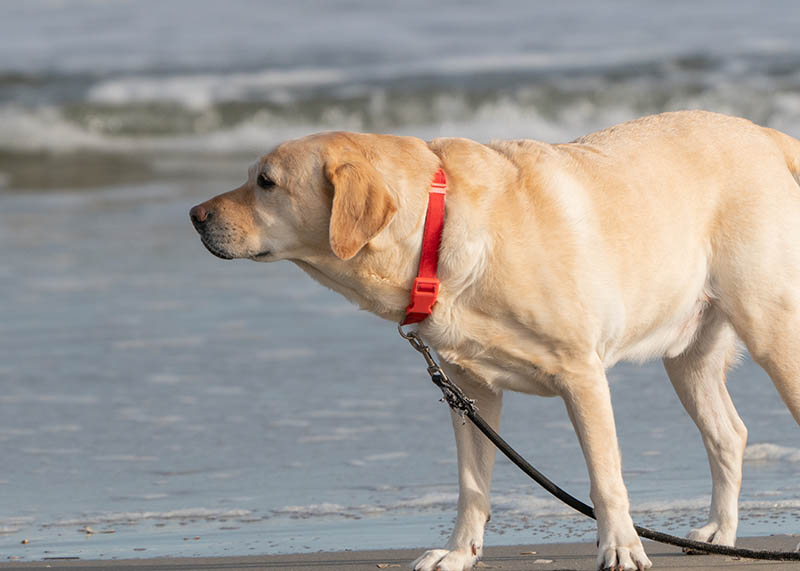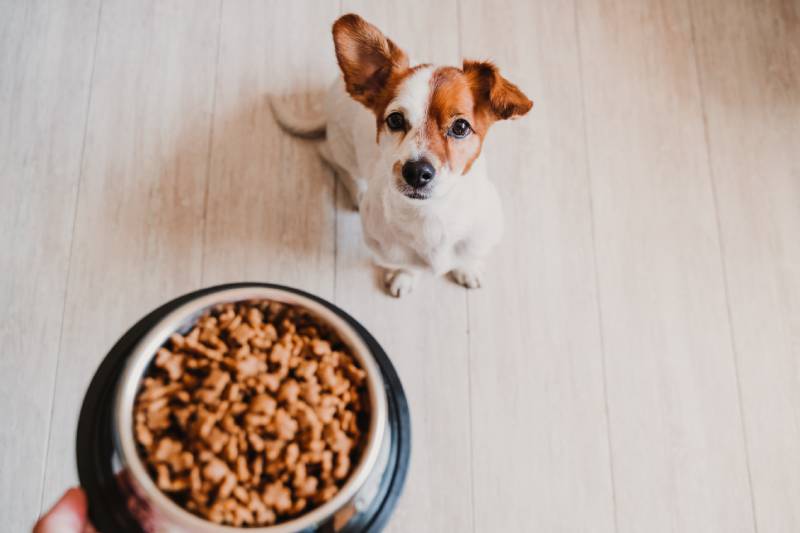Can Dogs Eat Feta? Vet-Approved Facts & FAQ
Updated on

Click to Skip Ahead
Feta is a tasty cheese with a salty, sharp, and creamy taste. This versatile ingredient can be crumbled on nearly any dish or food, including pasta, chickpeas, salads, pizza, and potatoes. But is it something you can share with your dog?
While feta cheese isn’t toxic for dogs in the way foods like grapes or chocolate are, it’s still not something we recommend feeding your pup. It is high in sodium and saturated fat, making it unsuitable for your canine family member. Read on to learn more.
What Is Feta Cheese?
Feta is a brined white cheese commonly used in Greek cuisine. Traditional feta is usually made from pasteurized sheep’s milk or a combination of sheep and goat’s milk. Cheesemakers in the U.S. and Canada produce a feta-style cheese product with cow’s milk.
Feta is cured in brine—a mixture of salt and water—and is often sold as such. The brine works to intensify the cheese’s flavor and keep it soft and fresh.

Why Can’t Dogs Eat Feta?
While feta isn’t toxic to dogs, there are several reasons you shouldn’t give it to your dog.
1. High in Saturated Fat
According to the US Department of Agriculture (USDA), a one-ounce serving of feta cheese contains approximately 6.1 grams of fat. While it is less fatty than other cheese types, including cheddar and swiss, feta still has too much fat for your pup’s digestive system to handle effectively if a large amount is given.
Additionally, a diet that’s too high in fat can cause pancreatitis.
2. High in Sodium
Another issue concerning dogs and feta cheese consumption is how high in sodium the cheese is. It’s that flavor-inducing and shelf-life-extending brine that really boosts the sodium content. There are approximately 323 milligrams of sodium in a one-ounce serving of feta.
According to the MSD Veterinary Manual , salt poisoning can happen with four grams of salt per kilogram of body weight. So, a very small Chihuahua weighing 2kg would need 8 grams of salt to become unwell. This translates to about 1.5 pounds of feta. Obviously this is an inappropriate and unrealistic amount of feta to feed to such a small dog for many reasons. However, it is still good to be mindful of your dog’s salt intake to avoid salt poisoning.

3. Lactose Content
Like all dairy products, feta contains lactose. Many dogs are lactose intolerant, meaning they have difficulty digesting milk. If this is the case for your pup, you may notice signs like:
- Loose stools
- Gas
- Vomiting
- Abdominal pain
Are There Any Health Benefits to Feta?
Not only is feta tasty, but it has some health benefits. It provides 5.3 grams of protein per one-ounce portion and is a decent source of calcium and vitamin A.
Dogs need calcium to ensure good health and facilitate proper bone growth and development although too much can be just as much of a problem as too little. Luckily, all your dog’s nutritional needs will be provided for if they are on a good quality kibble. So, if you decide you want to give your pup some feta, you can occasionally offer the tiniest amount as a special treat.

Final Thoughts
While feta certainly has some redeeming qualities aside from its taste, it’s not something we recommend feeding your dog. Its high sodium and fat content outweigh the potential benefits. If you decide to offer a taste to your pooch, offer a very small crumble now and then. As always, however, we recommend speaking with your vet before introducing new foods into your pup’s diet.
Featured Image Credit: HandmadePictures, Shutterstock













